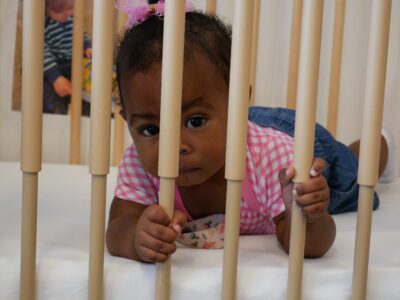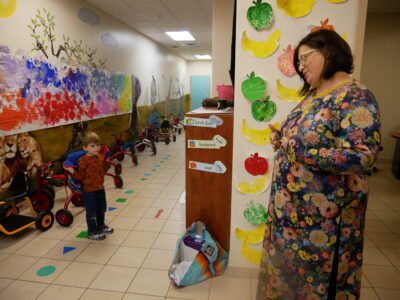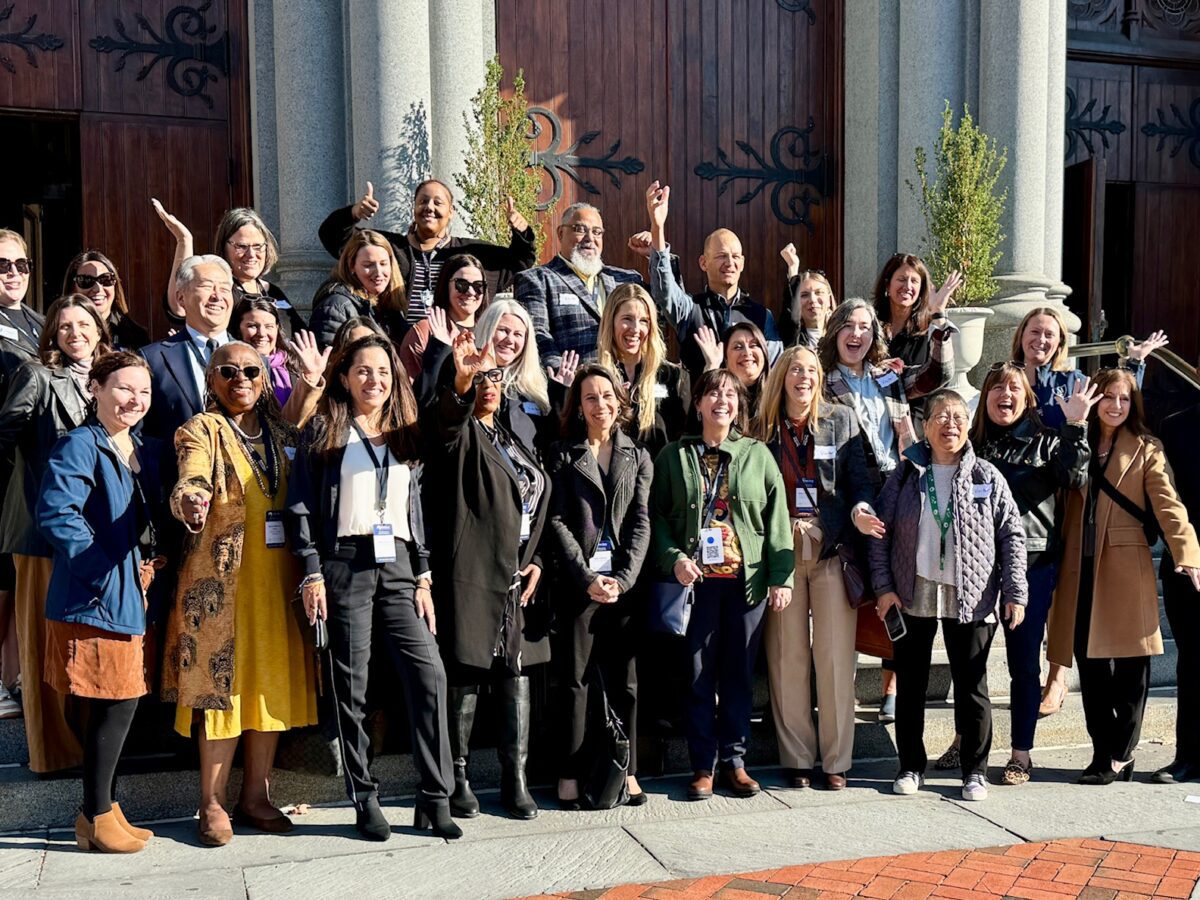

Share this story
Last week in Boston, in the garden of a Catholic church that is 152 years old and a school that is 134 years old, EdNC’s early child care team joined a delegation from California and leaders from Boston Public Schools to share challenges and opportunities in providing universal pre-k — and how religious schools can collaborate with public schools to serve more and more students.


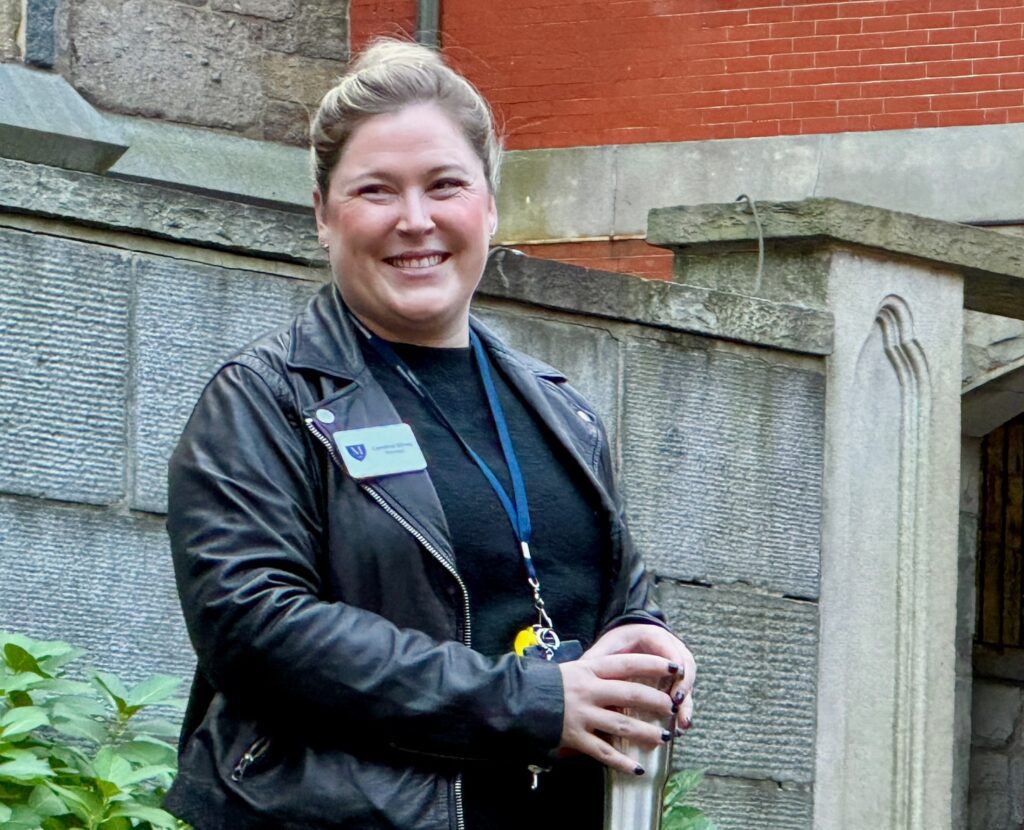

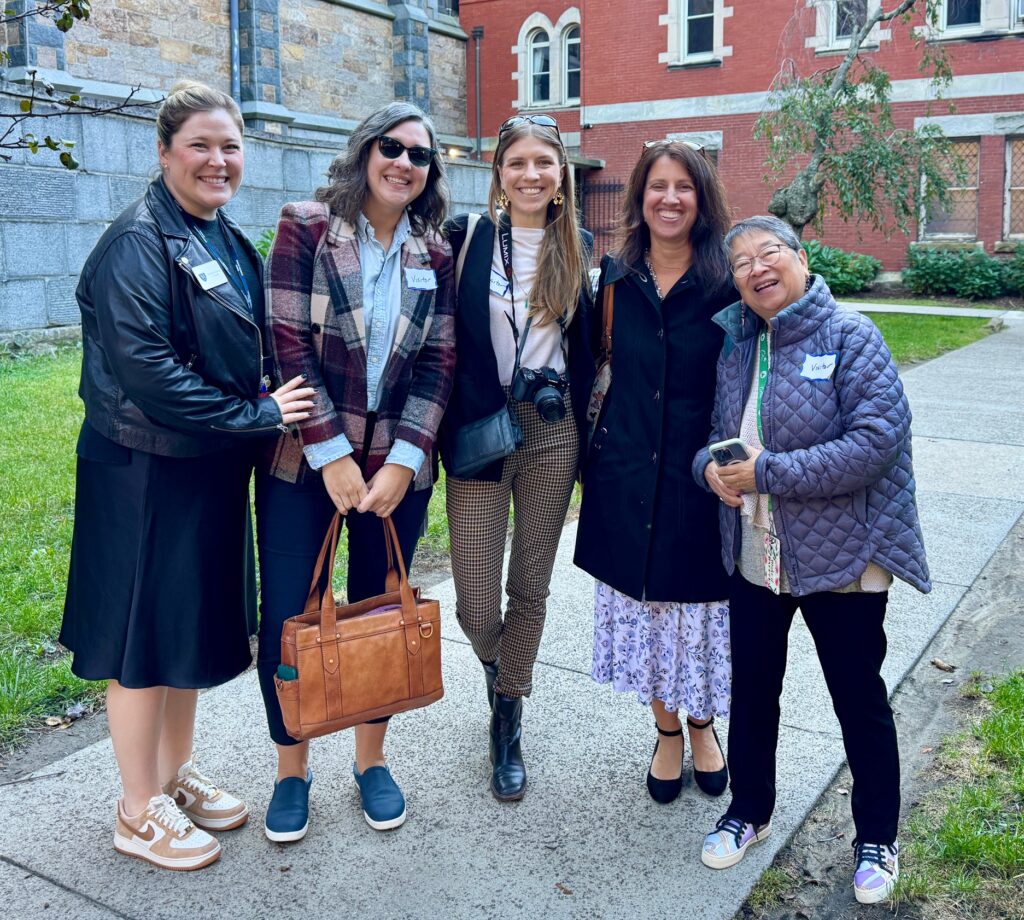

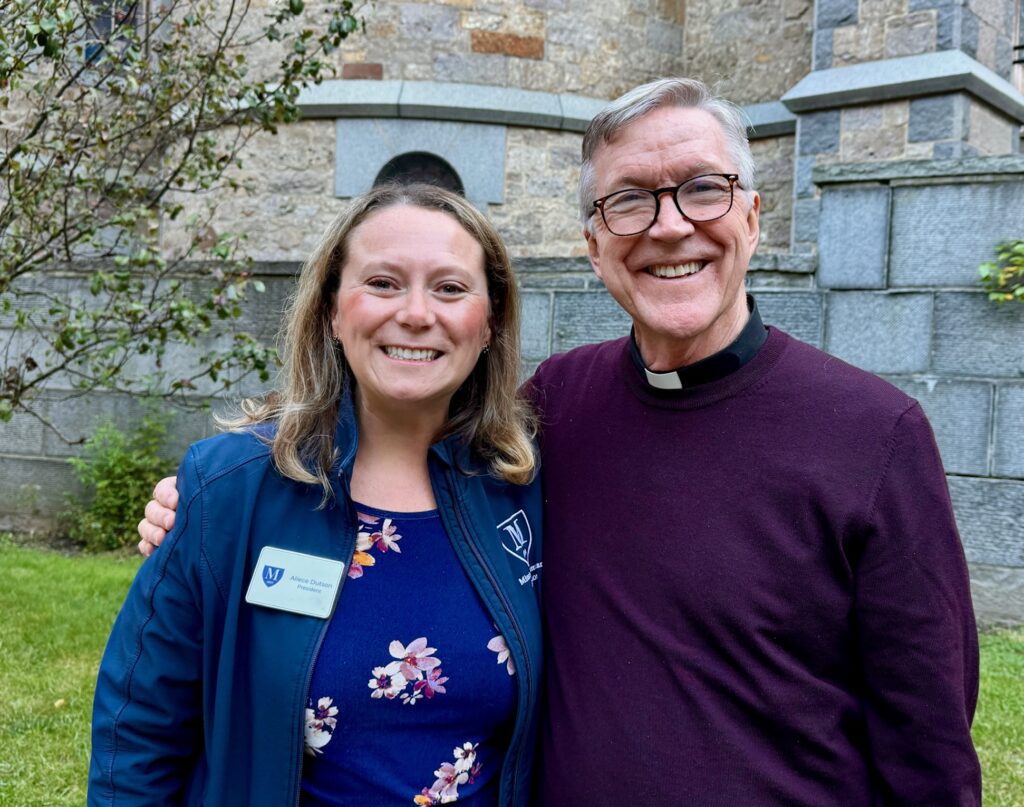

At Mission Grammar School-Our Lady of Perpetual Help, students are called scholars, and educators are called champions.
Seeking “unity in diversity” since 1889, the school now serves about 300 scholars as young as 3 months from 70 zip codes: 90% identify as scholars of color, 50% are Catholic, and 70% qualify for free and reduced price lunch.
An urban, college prep Catholic school, scholars are “living the Gospel on the road to college each and every day,” says Aliece “Ali” Dutson, the president of the school. But that description of the scholar journey can also be seen on signs around the school and the church in the community.
Signs in classrooms around the school let us know that this school CARES: “We are a Community, of Achievers, who Respect ourselves and each other; we work towards Equity, inclusion, and keeping our community Safe.
And while the school and church are historic, Dutson continuously strives also to be “the most innovative.”
The State of Massachusetts has a “dual-mechanism” early child care subsidy system. That means there are two different ways the state disburses subsidies: child care vouchers and contracted child care slots.
Mission Grammar School accepts vouchers, and in 2020, the school became the first Catholic school to partner with the Boston Public Schools and the city of Boston to provide universal pre-K, said Dutson. The collaboration, she said, grew out of a better understanding of the “overlap of values in serving kids and families no matter where you are coming from.”
According to Dutson, from July 1, 2021 through June 30, 2024, Mission Grammar School will receive $2,047,460 to provide universal pre-k through a grant agreement with the city.
Dutson said the collaboration has increased sustainability, teacher quality, and student and educator retention for her school.
Just days before our visit, Dutson testified at the Massachusetts State House in support of the Common Start Bill, which would provide families with affordable, high-quality early education and child care across Massachusetts.
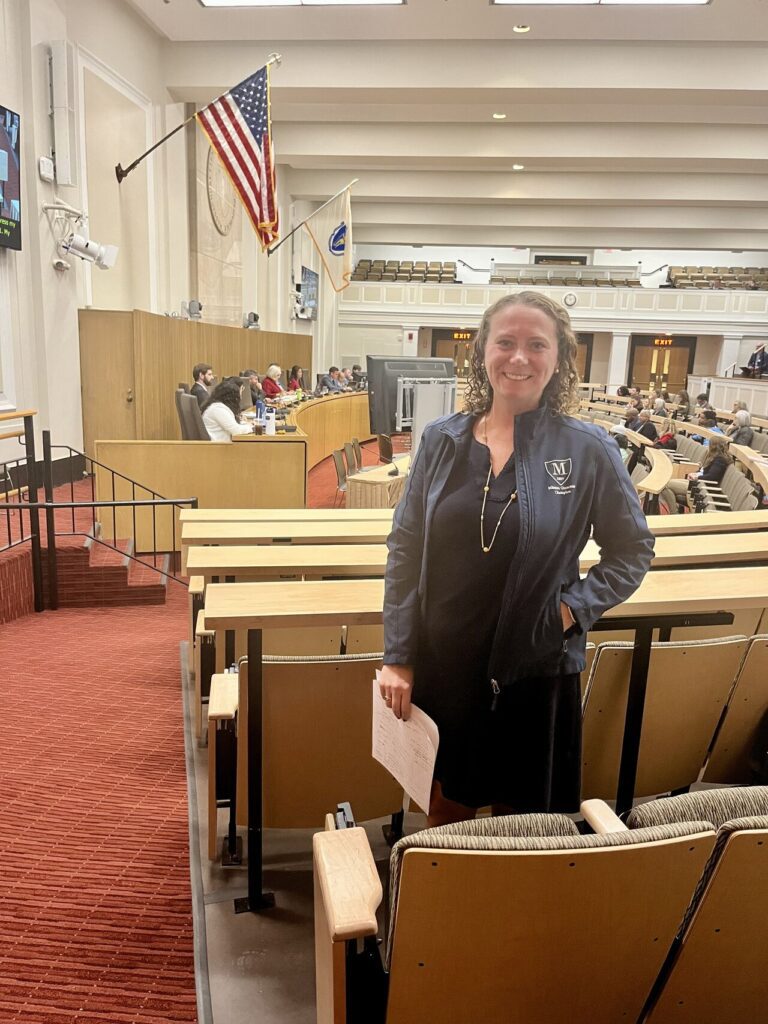

In her testimony, Dutson said, “At Mission Grammar we are focused on equity and opportunity for all of the children we serve. Every child not only deserves but must have a strong start. We are proud of the state of Massachusetts for prioritizing high-quality early childhood education because when we invest in that, everyone wins.”
You can read more about the Common Start Coalition here.
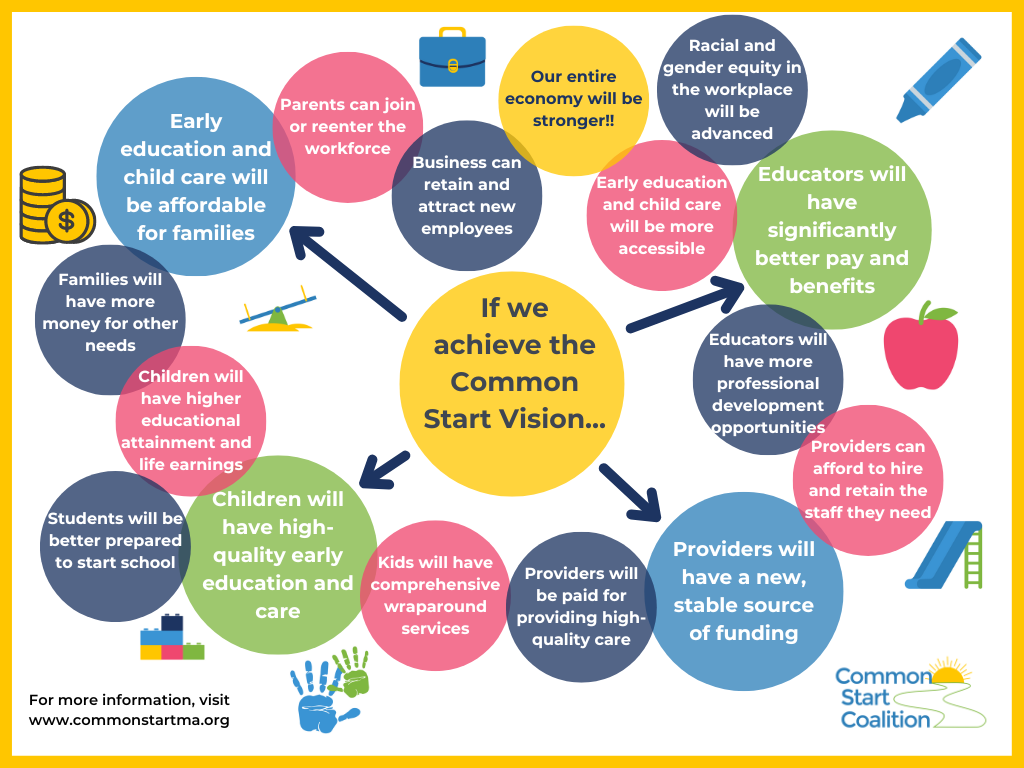

“This truly, truly matters,” Dutson said on our visit, reminding us that 80% of brain development happens before kids turn 3 years old, and 90% happens before they turn 5 years old.
Dutson wants her youngest scholars — and all of the state’s youngest scholars — to be “successful and thriving.”
“We really believe in this idea of access and opportunity and making sure that
— Ali Dutson, President, Mission Grammar School, Boston
no matter what all scholars have access to a high quality start.”
Inside the classrooms
Scholars at Mission Grammar School can arrive as early as 7:30 am and stay as late as 5:30 pm. Breakfast and lunch are provided.
In one classroom, scholars are singing “Wheels on the bus.”
In another classroom, scholars engage in five different resource-rich opportunities for learning, including life-sized paintings of themselves and writing letters.
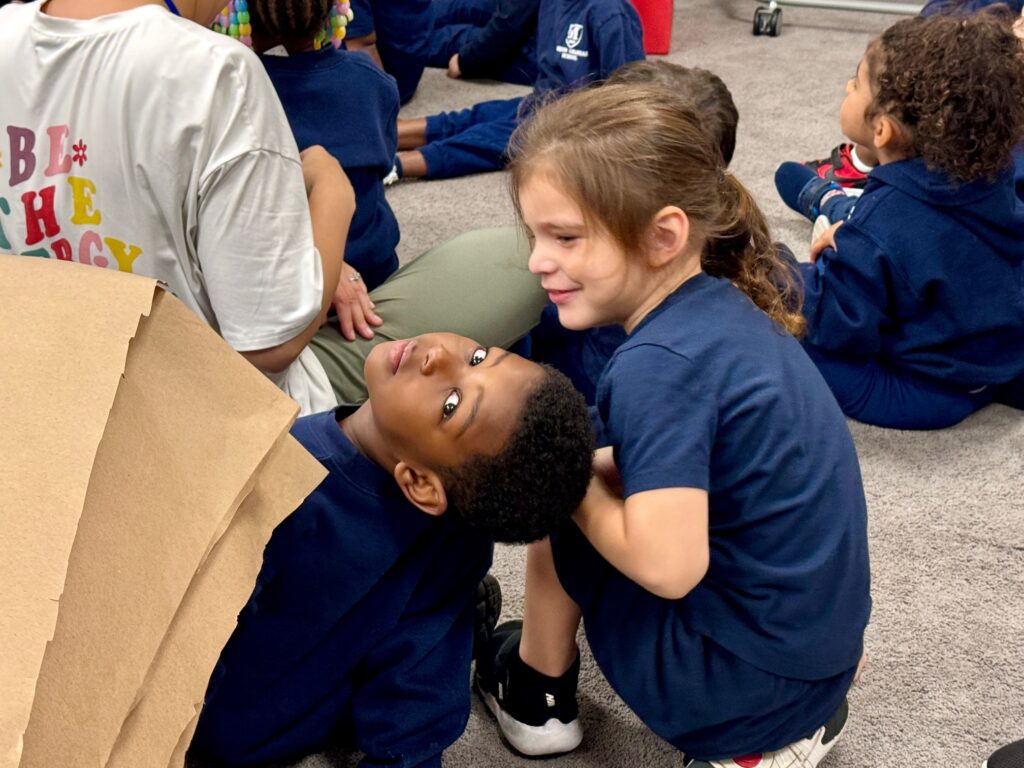

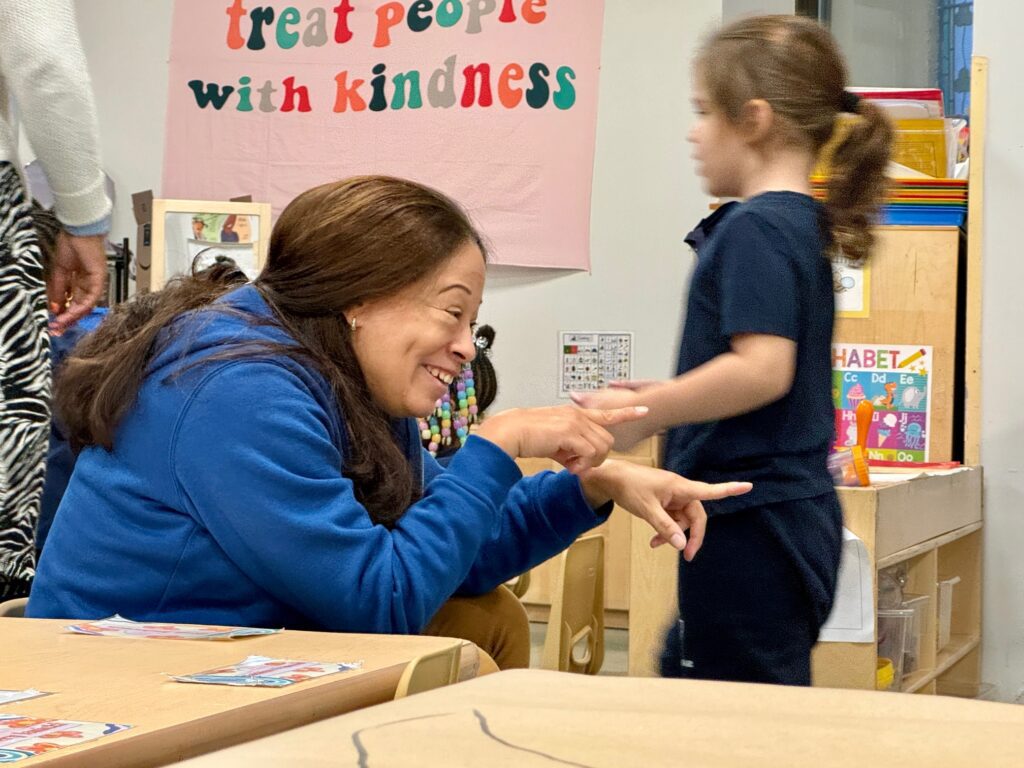

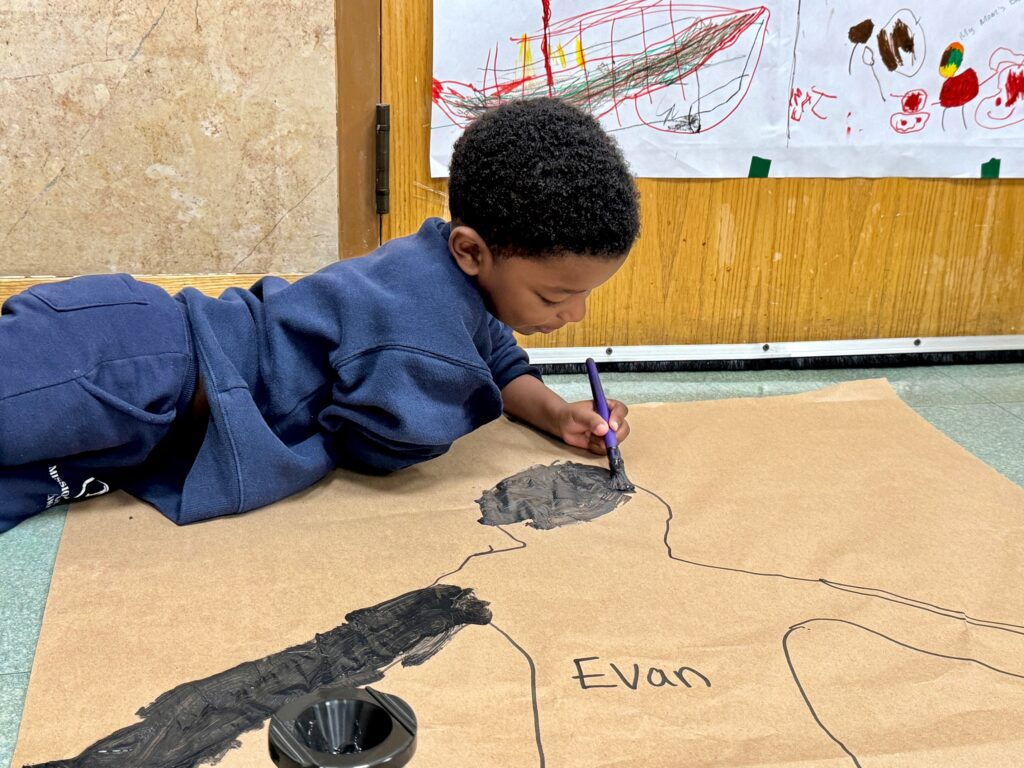

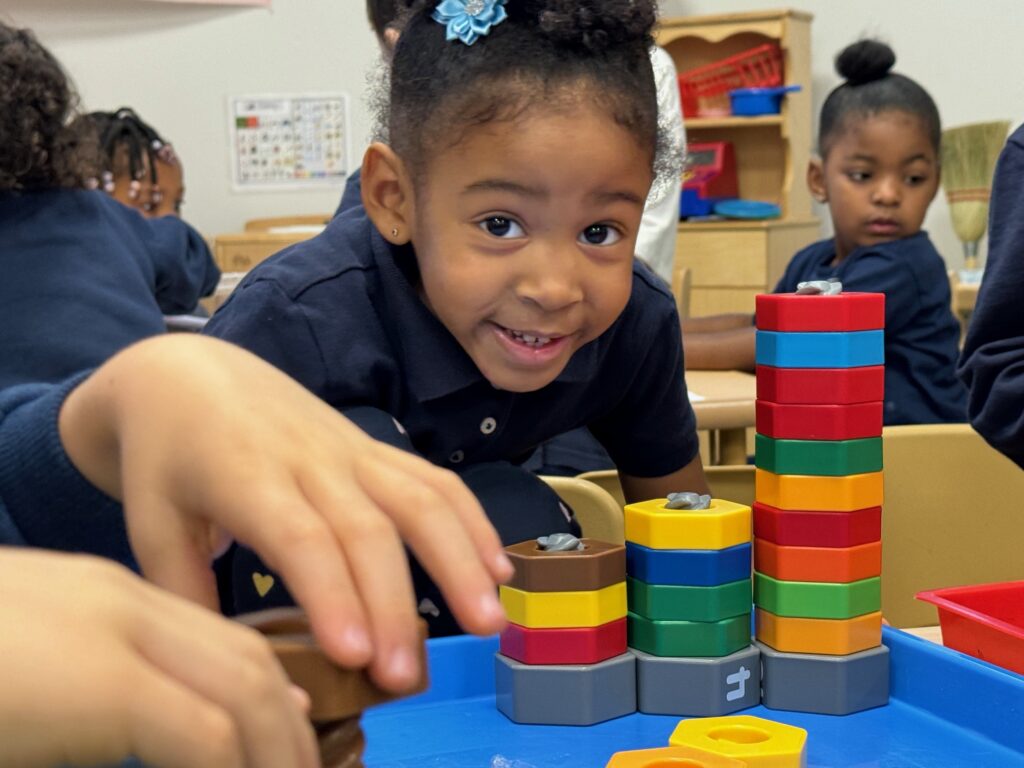

Meet Delali Agblekpe
Delali Agblekpe teaches four year olds, and this is her fourth year teaching at Mission Grammar School. She married in the church, lives in the community, and her child attends the school.
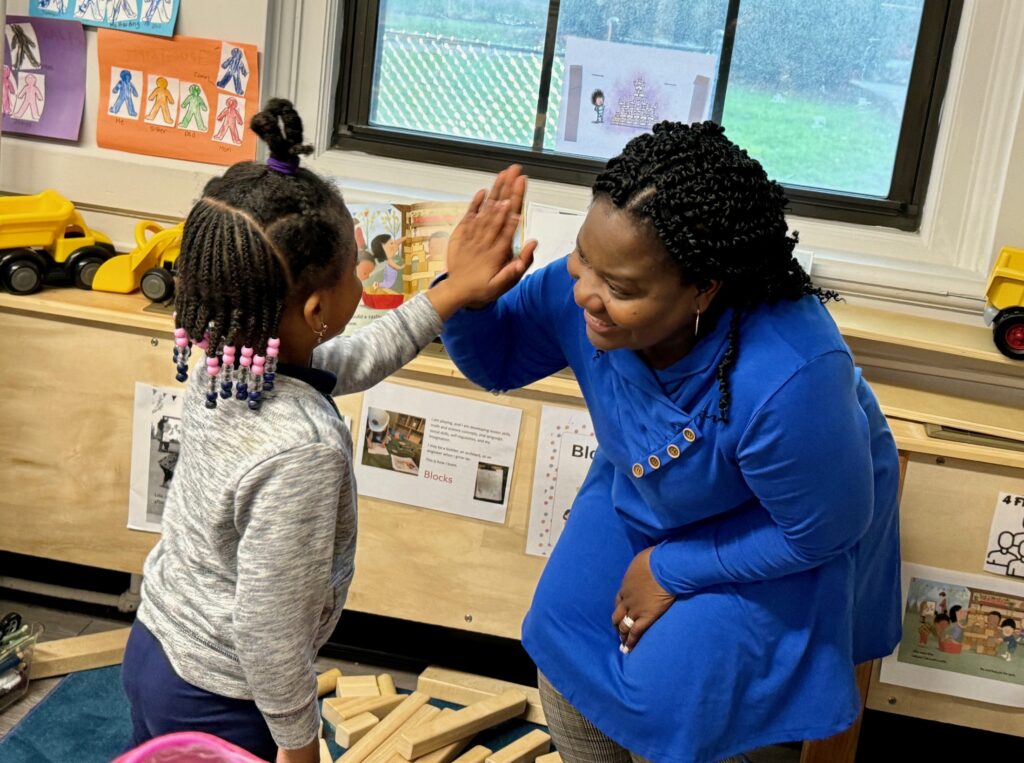

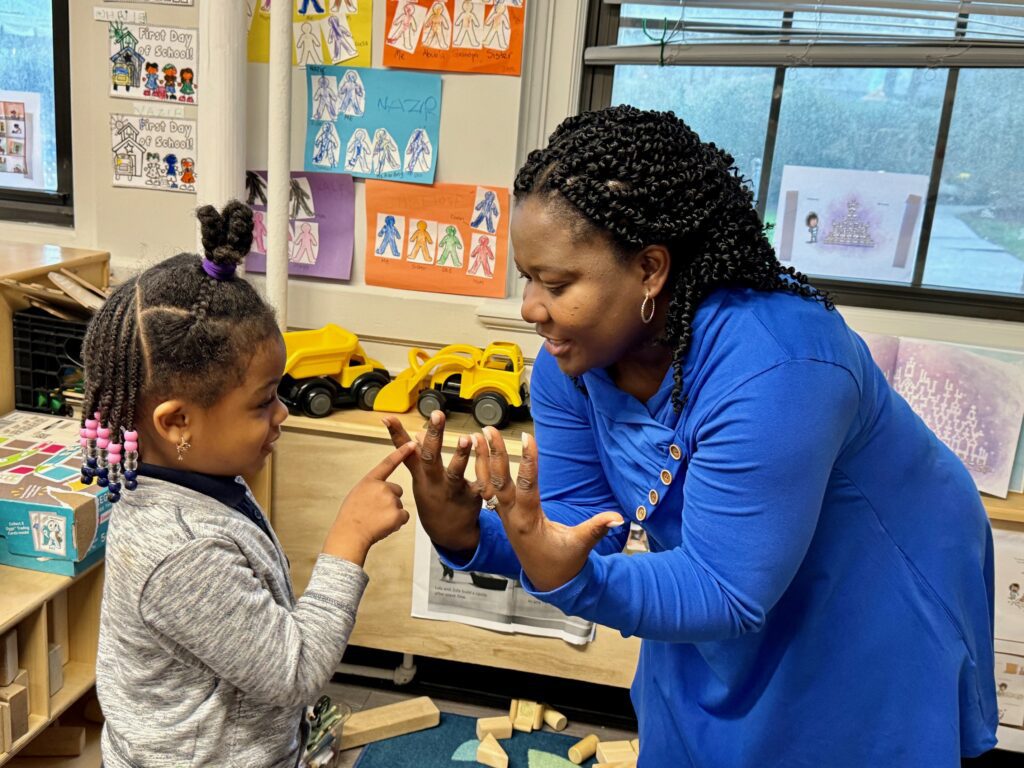

“I love teaching,” she says, “because it is a blessing to spend time with scholars, love them, help them, be a role model to them, support them, find positive solutions to their needs, and celebrate them.”
As Dutson walks in this classroom, she is noting that the scholars are engaged. She wants to see authentic joy and exploration of learning.
“So much learning is happening through play,” she said. She walks me through how the teaching in this classroom is rooted in research and different modalities of student learning.
But she also notes that scholars are learning “to move through the classroom space with ownership.”
It is important to Dutson that “there is pride and recognition on the walls of that learning, and the scholars can see themselves in the learning from self portraits to community portraits.”
Dutson said educators like Agblekpe “really believe in the unique ability and God-given brilliance of every child.”
Why is EdNC in Boston?


In fall 2022, EdNC’s Katie Dukes asked a group of students getting their master’s in public policy at Duke University a question. She wanted to know:
What are some existing models for government-funded or subsidized early care and education (birth-to-5) that could serve as potential blueprints for North Carolina?
The students’ research has informed our reporting on early child care, including the identification of five states where Katie and Liz wanted to “go and see” and learn more.
Their first visit was Michigan. North Carolina soon will launch a pilot in three counties based on a Michigan program that splits the cost of child care between businesses, employees, and state government.
EdNC’s early child care team is spending this week in Massachusetts and Vermont, and ahead of the Christmas holidays will also visit Oregon and New Mexico.
Along the way, they launched a Facebook group.
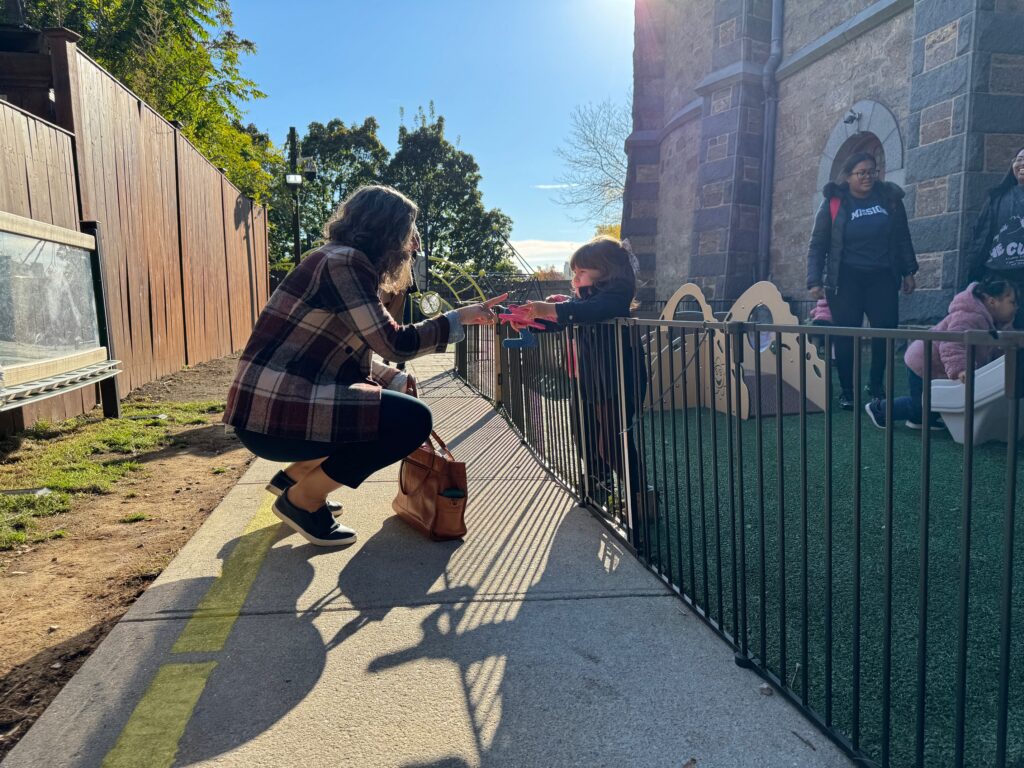

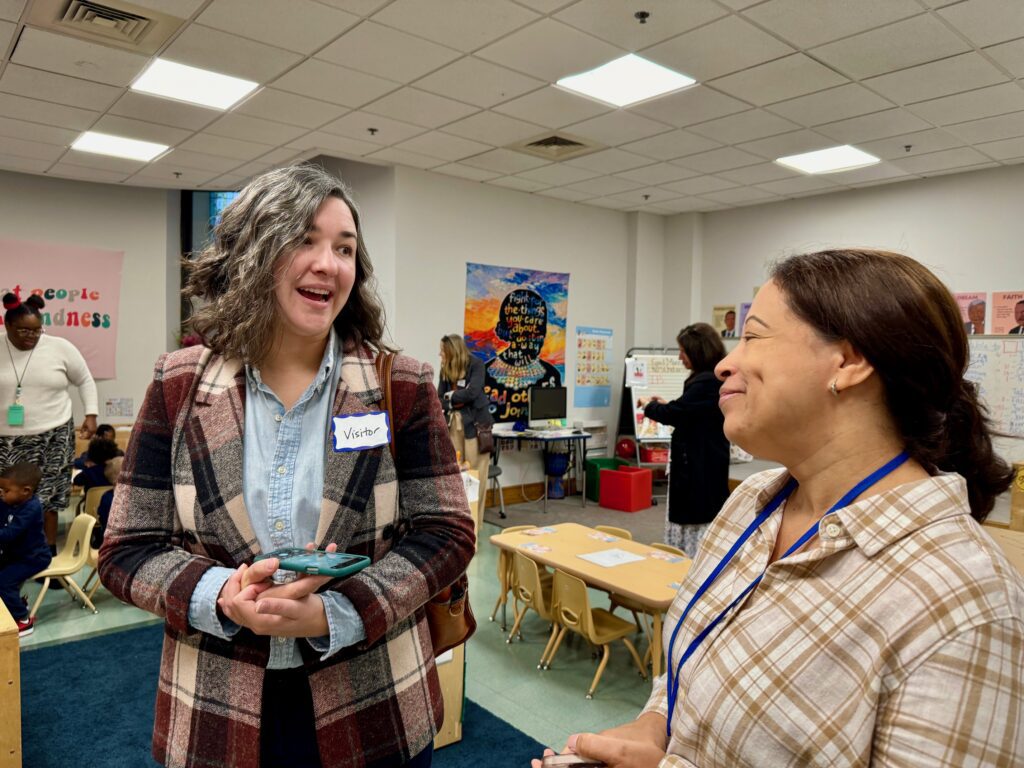

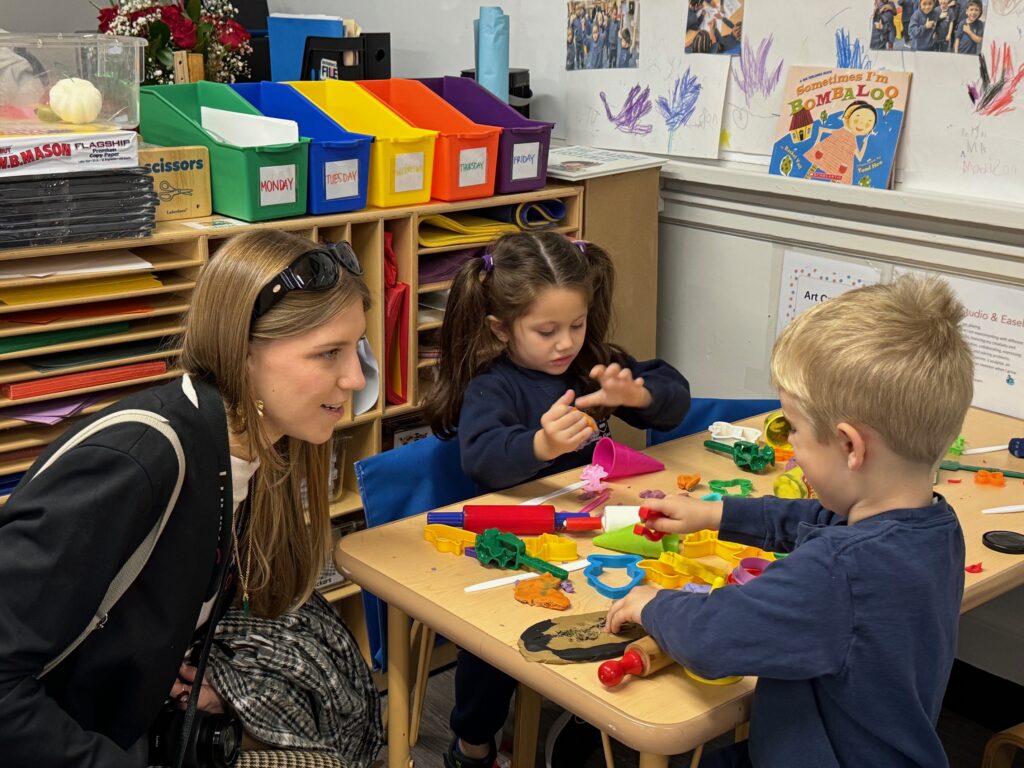

In addition to learning about Mission Grammar School, EdNC’s early child care team is visiting the Cambridge Public Schools, going to a Boys and Girls Club in Dorchester, visiting the Salem Public Schools, and learning about Building Bright Futures and Let’s Grow Kids in Vermont.
Panel discussions with the California delegation and Boston Public Schools included the history of universal pre-K in Boston, cost modeling, how to maintain high quality preschool programs in a mixed-delivery systems, expanding universal pre-K to family child care providers, preschool-2nd grade curriculum, the investment in instructional coaches to provide professional development to educators across settings, compensation for the universal pre-K workforce, provision of early child care to dual language learners, supporting children with learning differences, and the challenges and opportunities of infant/toddler care.
In Vermont, our early child care team will be there for the kick-off of the state’s Child Care Campaign, a statewide tour starting in South Burlington to showcase and celebrate the positive change happening on the ground for child care programs and communities.
The Duke students — Joe Greenberg, Morgan Manson, Abi McDougal, and Jordan Wilson — concluded in their report to EdNC:
To expand access to quality child care for all its residents, the Sanford consulting team recommends that stakeholders further investigate the feasibility of the models presented in this report, determine which models best fit North Carolina’s needs, and work with policyshapers and policymakers to advance a comprehensive plan for implementation at the state level.
That’s what we are doing. Stay tuned.


